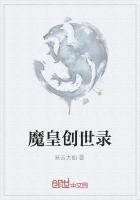22. It is through the information brought by the converted spy that we are able to acquire and employ local and inward spies.
[Tu Yu says: "through conversion of the enemy's spies we learn the enemy's condition." And Chang Yu says: "We must tempt the converted spy into our service, because it is he that knows which of the local inhabitants are greedy of gain, and which of the officials are open to corruption."]
23. It is owing to his information, again, that we can cause the doomed spy to carry false tidings to the enemy.
[Chang Yu says, "because the converted spy knows how the enemy can best be deceived."]
24. Lastly, it is by his information that the surviving spy can be used on appointed occasions.
25. The end and aim of spying in all its five varieties is knowledge of the enemy; and this knowledge can only be derived, in the first instance, from the converted spy.
[As explained in ss. 22-24. He not only brings information himself, but makes it possible to use the other kinds of spy to advantage.]
Hence it is essential that the converted spy be treated with the utmost liberality.
26. Of old, the rise of the Yin dynasty[Sun Tzu means the Shang dynasty, founded in 1766 B.C. Its name was changed to Yin by P`an Keng in 1401.
was due to I Chih[Better known as I Yin, the famous general and statesman who took part in Ch`eng T`ang's campaign against Chieh Kuei.]
who had served under the Hsia. Likewise, the rise of the Chou dynasty was due to Lu Ya[Lu Shang rose to high office under the tyrant Chou Hsin, whom he afterwards helped to overthrow. Popularly known as T`ai Kung, a title bestowed on him by Wen Wang, he is said to have composed a treatise on war, erroneously identified with the LIU T`AO.]
who had served under the Yin.
[There is less precision in the Chinese than I have thought it well to introduce into my translation, and the commentaries on the passage are by no means explicit. But, having regard to the context, we can hardly doubt that Sun Tzu is holding up I Chih and Lu Ya as illustrious examples of the converted spy, or something closely analogous. His suggestion is, that the Hsia and Yin dynasties were upset owing to the intimate knowledge of their weaknesses and shortcoming which these former ministers were able to impart to the other side. Mei Yao-ch`en appears to resent any such aspersion on these historic names: "I Yin and Lu Ya," he says, "were not rebels against the Government. Hsia could not employ the former, hence Yin employed him. Yin could not employ the latter, hence Hou employed him. Their great achievements were all for the good of the people." Ho Shih is also indignant: "How should two divinely inspired men such as Iand Lu have acted as common spies? Sun Tzu's mention of them simply means that the proper use of the five classes of spies is a matter which requires men of the highest mental caliber like Iand Lu, whose wisdom and capacity qualified them for the task.
The above words only emphasize this point." Ho Shih believes then that the two heroes are mentioned on account of their supposed skill in the use of spies. But this is very weak.]
27. Hence it is only the enlightened ruler and the wise general who will use the highest intelligence of the army for purposes of spying and thereby they achieve great results.
[Tu Mu closes with a note of warning: "Just as water, which carries a boat from bank to bank, may also be the means of sinking it, so reliance on spies, while production of great results, is oft-times the cause of utter destruction."]
Spies are a most important element in water, because on them depends an army's ability to move.
[Chia Lin says that an army without spies is like a man with ears or eyes.]
[1] "Aids to Scouting," p. 2.
[2] "Marshal Turenne," p. 311.
End











